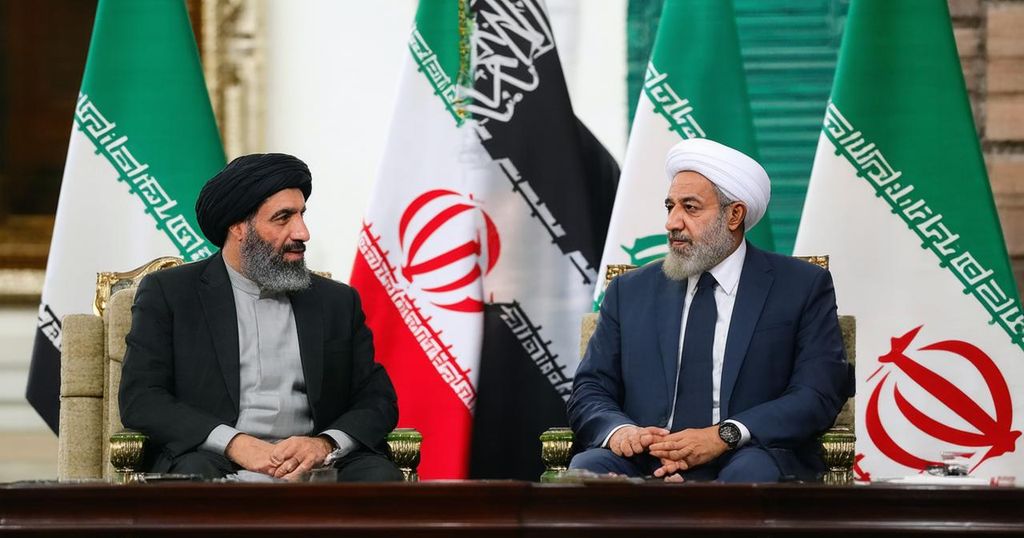Amid rising tensions and ineffective U.S. diplomatic efforts, Arab allies of Washington are engaging more significantly with Iran to defuse threats of regional conflict. Despite continued military aggression from Israel, notable diplomatic interactions between Arab states and Iran signal a strategic shift away from historical confrontations to a focus on engagement and dialogue, driven by concerns over regional stability and economic interests.
Tensions in the Middle East are escalating as key Arab allies of the United States engage directly with Iran amid a perceived lack of effectiveness in U.S. diplomatic efforts to stabilize the region. Arab nations, driven by the rising threat of broader conflict, are leveraging renewed ties with Iran to seek regional stability as U.S. interventions fail to yield results. Secretary of State Antony Blinken’s series of visits to the region—including his recent trip to Israel—have not altered the trajectory of events, as Israel continues military operations against Hamas and Hezbollah following the assassination of their leaders. In light of Iran’s escalating military responses, including missile strikes on Israel, Arab nations are recalibrating their strategies. A significant shift is evidenced by recent meetings between Iranian officials and leaders from Saudi Arabia, Jordan, Egypt, Qatar, Oman, and Bahrain. These governments, which historically were in conflict with Iran, now appear to prioritize diplomatic relations as a means of fostering regional dialogue and defusing potential violence. Both Saudi Crown Prince Mohamed bin Salman and Iranian Foreign Minister Abbas Araghchi have engaged in negotiations, and Araghchi reported that assurances have been received from various countries that their airspace will not be used for attacks on Iran. This reflects a collective hesitance among Gulf states to be dragged into further conflict, especially given their prior experiences with Iranian aggression and their current economic interests. Moreover, the recent military actions taken by Israel against groups like Hezbollah and Hamas have not been wholly welcomed by Arab states, which fear uncontrollable escalation and subsequent destabilization in their own territories. The observations made by diplomatic experts underline that, although some Gulf monarchies might find the weakening of Hezbollah and Hamas advantageous, they harbor significant concerns about the potential repercussions of Israel’s militaristic stance and unclear long-term strategic objectives. In essence, Gulf states are increasingly wary of U.S. commitments to support them during crises. After feeling a lack of adequate defense against Iranian aggressions, such as attacks on Saudi and Emirati soil, Arab leaders are calling for a more robust American involvement during this critical juncture to manage and contain hostilities in Gaza and Lebanon. During this decisive moment, countries such as the UAE have begun to call for immediate ceasefires in the regions plagued by violence, reflecting their need for stability to preserve their economic objectives amid escalating regional turmoil.
The article discusses the increasing diplomatic engagement of Washington’s Arab allies with Iran, highlighting the underlying tensions in the Middle East stemming from the U.S. inability to effectively de-escalate conflicts. It outlines recent meetings among Arab leaders and Iranian officials, indicating a shift in foreign policy towards engagement rather than confrontation. The historical backdrop involves long-standing suspicions Arab nations hold towards Iran, particularly in light of its support for non-state Islamist groups which threaten U.S.-aligned Sunni states in the region. U.S. Secretary of State Antony Blinken’s recent visits to the Middle East illustrate ongoing efforts to mediate the violence, yet they have been largely unsuccessful at achieving significant ceasefires or diplomatic breakthroughs amid heightened tensions following notable military actions from Israel against Palestinian factions.
The increasing engagement of Arab allies with Iran highlights a significant shift in regional diplomatic dynamics prompted by the perceived ineffectiveness of U.S. intervention strategies. As these states seek to prevent escalation and safeguard their national interests, the emerging relationships between them and Iran indicate a pragmatic approach towards achieving stability. The ongoing challenges faced by the Biden administration in mediating peace underscore the complexities of the geopolitical landscape in the Middle East, as well as the urgent need for a cohesive strategy to address the deep-rooted conflicts affecting the region.
Original Source: www.cnn.com






